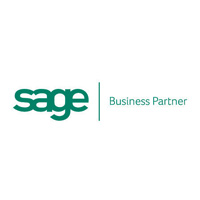
With effect from 6 April 2016 UK companies are required to hold a register of People with Significant Control (‘PSC’). This register is additional to the existing statutory registers that have to be maintained, such as the register of directors and register of members. The PSC register will include information about the individuals who own or control companies including their name, month and year of birth, nationality, and details of their interest in the company.
From 30 June 2016, UK companies will need to declare this information when making their annual confirmation statement (previously, annual return) to Companies House.
Is this relevant to our academy trust?
Yes. An academy trust is considered a company for this reporting purpose and is required to comply with the regulations. The academy trust is required to determine whether or not it has any PSC’s, even if you determine that you have no PSC’s, you are still required to maintain a register that documents this. In the event of no PSC’s, the register must simply state.
“The company knows or has reasonable cause to believe there is no registerable person or relevant legal entity in relation to the company”.
For many academies, with 4 or more members, this will be the only entry in the register.
What is a PSC in relation to the academy trust and how do we determine if we have any?
A PSC can be an individual (a ‘registerable person’) or corporate/company member (a ‘relevant legal entity’) who meets any of the following conditions:
| Condition | Commentary |
| They hold (directly or indirectly) more than 25% of the shares. | Academy trusts do not normally have shareholders so this condition will not normally apply. |
| They hold (directly or indirectly) more than 25% of the voting rights. | Voting rights in the case of an academy trust are those of the members in general meetings and will usually be set out in the Articles of Association. They will be detailed under “Votes of Members” and will usually provide that each member has one vote. |
| They hold (directly or indirectly) the right to appoint or remove the majority of the directors in your trust. | In our experience it would be unusual for a single individual or entity to have such power in a convertor academy trust. |
| They otherwise have the right to exercise, or actually exercise, “significant influence” or “control”. | If a person or entity in their own right has the power to direct the activities of the trust, this is indicative of control (e.g. having absolute decision rights over adapting or amending the business plan or changing the nature of the trust’s activities). Significant influence enables a person to ensure that the trust adopts the policies or activities that they desire (e.g. This could be a member who holds 25% or less of the voting rights but whose recommendations to the other members are usually followed). |
Where an individual is acting as a nominee for another and the person for whom the nominee acts satisfies one or more of the conditions, it is they who are entered on the register and the nominee is ignored for this purpose.
Where direct voting rights are held by a company, (e.g. where a member is itself a company, such as a sponsor) then that company itself must be assessed against the above conditions in order to establish if it should be disclosed as a Relevant Legal Entity (“RLE”). If the company meets the conditions, then the company name should be entered on the register, provided itself is required to comply with the PSC regulations (if the company is not registered in the UK, alternative procedures apply and you should seek further guidance).
Are there any exceptions or exempted roles?
Although the statutory guidance is still in draft format, it does provide for roles which it defines as “Safe Harbours”. These roles and relationships are those that would not in the normal course result in that person being considered to be exercising significant influence. The list includes professional advisors, suppliers, regulators, employees and directors. Importantly, it also includes a Managing Director, which in the case of an academy trust is most likely to be the CEO, Executive Head Teacher, Principal or equivalent position holder.
What do we have to do once we have identified PSC’s?
You will need to write to those individuals whom you consider to be PSC’s to notify them that you intend to enter them on the register and to obtain confirmation from them that your assessment of their status is correct. We have included a template letter as an attachment for your use.
You must ensure that the register is completed and in place by 30 June 2016.
From 1 July 2016, Companies House will require companies to submit a confirmation statement, which will replace the current Annual Return, at least once annually to them and the information on the register will need to be confirmed.
What information is required on the register and will it be available publicly?
A template of the register can be found on the link below. The academy trust’s PSC Register must be kept at its registered office (or other inspection address) and be available for public inspection in the same way as for the register of members. From 30 June 2016, Companies House will allow you to elect to keep the PSC Register (as well as other statutory registers) at Companies House.
Companies are obliged to provide free access to the PSC Register and copies of it to any person on request for a flat fee of £12 per copy. However, the usual residential address of PSC’s must not be disclosed on the public register and will not be available to anybody exercising their right to access the information or request a copy of the register.
Resources
The detailed guidance and additional information can be found below:
Register Guidance – Department for Business Innovation and Skills
Significant Influence or control – draft statutory guidance
If you have any questions or need further assistance, please contact Paul Smith on 01689 877081 or and we will be pleased to provide further guidance.




